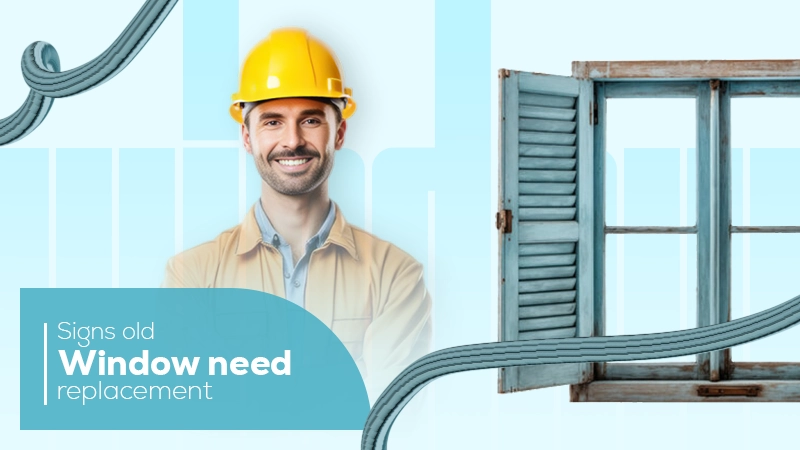Air conditioning is not only necessary to cool your house, but it is essential in regulating the humidity. You can convert your home into a much more comfortable place with the appropriate AC system, to lock up your house, and even save on the energy charges going forward.
In a humid climate, the challenge goes beyond the temperature.
A study from the National Library of Medicine found that when relative humidity in a home exceeds 60% it can lead to serious property damage, including mold and rot.
Therefore, this article discusses the most effective air conditioning system in a humid climate home AC repair, what features to focus on, what type of system to consider, and what strategies to use to optimize performance.
KEY TAKEAWAYS
- Look for Specific Features: When shopping for a new AC.
- Choose the Right System options for humid climates.
- Regular professional maintenance and cleaning of filters will ensure your AC runs efficiently and effectively.
- An oversized AC unit will cool too quickly and fail to properly remove moisture from the air.

The Impact of High Humidity on Homes
When you avoid residential AC repair and the humidity increases more than 60 percent, there are a number of ailments that can occur inside a house. The air is, first and foremost, warm and heavy, which is not advantageous to occupants. Due to the compromised ability to cool the body through sweat, it becomes sticky and clammy inside.
Humidity will coincide with the feeling of being unwelcoming and will lead to growing mold and mildew, which can cause health issues and ruin fabrics, furniture, and wooden materials. Additionally, the wood floors will naturally peel under the humidity and eventually shorten the electronics’ lifespan.
Key Features to Look for in an AC for Humid Climates
In the analysis of air conditioning units that are to be used in high-humidity conditions, special attention should be attributed to the following characteristics:
- Good Dehumidification Capacity: Air conditioners need to be able to cool and dehumidify effectively.
- Variable-Speed Technology: Variable-speed compressor and fan will allow for systems to run at optimized speeds over prolonged periods to maximize humidity extraction without wasting energy.
- Great SEER Rating: SEER is even more beneficial in humid climates, where the air-conditioner will be switching on a lot more frequently. The Seasonal Energy Efficiency Ratio (SEER) is flooding, meaning that the monetary value of operations is low.
- Smart Controls and Sensors: More recently invented AC systems are now being equipped with humidity measurement devices and smart thermostats to automatically regulate their operation to guarantee comfortable conditions.
- Corrosion Resistant: Engines constructed with corrosion-resistant paints or stainless steel assemblies are more durable.
The homeowner can be confident that their air conditioning system will enable them to avoid the humid weather and always feel comfortable.
According to the U.S. Energy Information Administration, space cooling accounts for the largest share of home electricity use in the residential sector.

Best Types of AC Systems for High-Humidity Regions
170 million people are experiencing above-average temperatures during summer in the US. How to pick the best air conditioning system for your area is explained here.
Variable-Speed Compressor Central Air Conditioning.
The most popular form of air conditioning for the whole house is still central air conditioning systems. In a humid climate, models with variable-speed technology are highly beneficial.
Ductless Mini-Split Systems
Mini-splits are a great choice when the home has no ductwork or has a zoned cooling when the house needs to be zoned cooling or has no ductwork, mini-splits are a great option. The homeowner can modify the humidity level in the room because each unit can be controlled separately inside the house.
Heat Pumps With Dehumidifying Modes
In regions with hot summers and mild winters, heat pumps are employed. Many modern heat pumps have unique dehumidification settings that are more concerned with moisture removal than with cooling.
Paired with AC Whole-House Dehumidifiers
If you want to maximize humidity in a specific area, a whole-house dehumidifier with a central air conditioning system might be the best option. As the air conditioner cools down, the dehumidifier automatically controls the moisture content to provide the best possible comfort.

Enhancing AC Performance in Humid Homes
The best AC system will definitely not service itself well without maintenance and home AC repair. Homeowners are offered to do some work to achieve efficiency:
- Routine Maintenance: Have coils, level, refrigerant, and drain system cleaned once a year by professionals such as Chill Heating and Cooling.
- Wash Filters Regularly: Contaminated filters can never move air as efficiently, and therefore limit your cooling and dehumidification in air conditioning.
- Make sure it is the right size: An AC that is too extravagant will cool too efficiently and not run long appropriately to get the humidity out. When it comes to appropriate sizing, balance is crucial.
- Enhance Insulation and Sealing: Reduces the sound of the air conditioner and keeps the humid outside air from entering the building.
- Adjust Thermostat Program: Have thermostat set to be as appealing and effective as possible (approximately 78 F, humidity control where available) with humidity control on.
Practical Tips for Homeowners in Humid Climates
Simple lifestyle changes can also reduce AC noise and regulate indoor humidity in addition to replacing an AC system.
- Install Exhaust Fans
- Reduce Indoor Moisture Sources
- Install Ceiling Fans
- Check Humidity
- Natural Ventilation
These techniques are in addition to what the AC system can accomplish and bring about a better and more comfortable living environment.
Cost and Long-Term Savings
There may be an increased initiation cost and AC installation complications in upgrading to a humidity-optimized AC system, especially variable-speed units or whole-house dehumidifiers. But the prospective payoffs usually tend to supersede the cost. A decrease in energy usage also means a decline in the monthly utility bill, and a diminution in humidity can save money in terms of expensive substitutions caused by mold or rot, or damaged flooring.
Final Thoughts
A very humid climate does not necessarily suggest that the individual needs to lead an intolerable life and literally fight against molds and the devastation of properties. Controlling the variables of the air conditioning system, such as a ductless mini-split, a whole-house dehumidifier, and a variable-speed central air conditioning system, is one of the things that enables homeowners to maintain a fairly constant level of comfort and security.
What is a good humidity level for a home?
The ideal indoor humidity level is generally between 30% and 50%.
How do I know if my AC is too big for my home?
An AC that is too large will often “short-cycle,” meaning it cools the house too quickly and shuts off before it has time to remove sufficient moisture from the air.
Can a dehumidifier replace an AC?
No. A dehumidifier primarily removes moisture from the air, while an AC removes both heat and moisture.
How much money can a high-efficiency AC save me?
According to the U.S. Department of Energy, a new, high-efficiency central air conditioning system can cut your energy consumption for cooling by 20% to 50% compared to older models.





